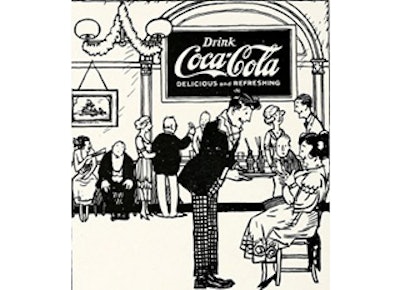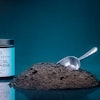
The new head of Coca-Cola North America talks the talk — “our job is to refresh the world,” Coke is “the pause that refreshes” — but tries personally to limit his daily intake, according to an in-depth Bloomberg Businessweek story about the big job Sandy Douglas faces in trying to turn the business around.
That paradox comes with a cultural context and a major, long-term problem, as reporters Claire Suddath and Duane Stanford explain: “Cultural shifts don’t happen overnight. They build slowly—a sip of coconut water here, a quinoa purchase there, and suddenly the American diet looks drastically different than it did 10 years ago. Nowhere is this more pronounced than in the $75 billion soda industry. For decades, soft-drink companies saw consumption rise. During the 1970s, the average person doubled the amount of soda they drank; by the 1980s it had overtaken tap water. In 1998, Americans were downing 56 gallons of the stuff every year…. And then we weren’t as thirsty for soda anymore, and there were so many new drink options that we could easily swap it out for something else. Soft-drink sales stabilized for a few years; in 2005 they started dropping, and they haven’t stopped.”
In part, it’s an ingredient issue. Soda pop tends to include several ingredients that consumers most avoid: high-fructose corn syrup, sugar, artificial sweeteners.
But Coca-Cola, which ironically was created as a healthy drink alternative for the pro-temperance crowd, has had trouble with recipe change. The failure of New Coke is the most glaring example, but just this summer its VitaminWater brand faced a backlash for switching to a stevia-and-sugar combination. “If I want to cut out sugar, I can get the diet version. Why are they doing it for me?” one customer wrote on Facebook, according to BloombergBusinessweek.
That’s even truer for legacy brands: When people want it, they want it as they remember it, sugar and all. The problem is, people don’t want it as frequently as they used to — partly because of health concerns, and partly because there’s so much else to choose from now.
While Douglas might boost Coke sales through advertising and other means, consumers are still going to try other drinks — and Coca-Cola has diversified into other types of beverages. In addition to VitaminWater, Dasani and Glaceau, it also owns Fuze tea, Zico coconut water and Honest Tea — but like most beverage companies, the last three have yet to reach the $1 billion annual sales hurdle. New lines of beverages mean a whole new way of thinking and marketing — and to succeed, Coca-Cola will have to be good at that, too.
About
The Hartbeat blog features insights about trends and consumer culture from The Hartman Group‘s anthropologists, ethnographers and other researchers, who have spent decades studying how consumers shop, cook and eat.






















